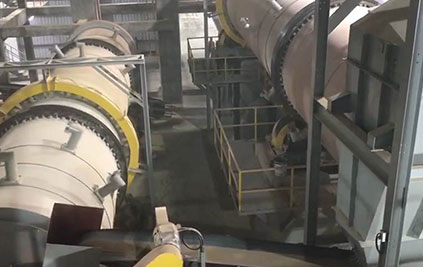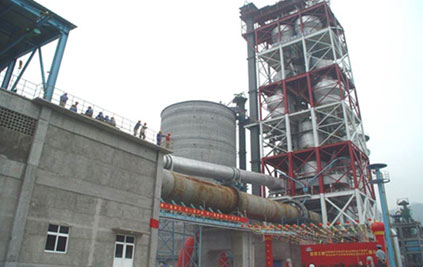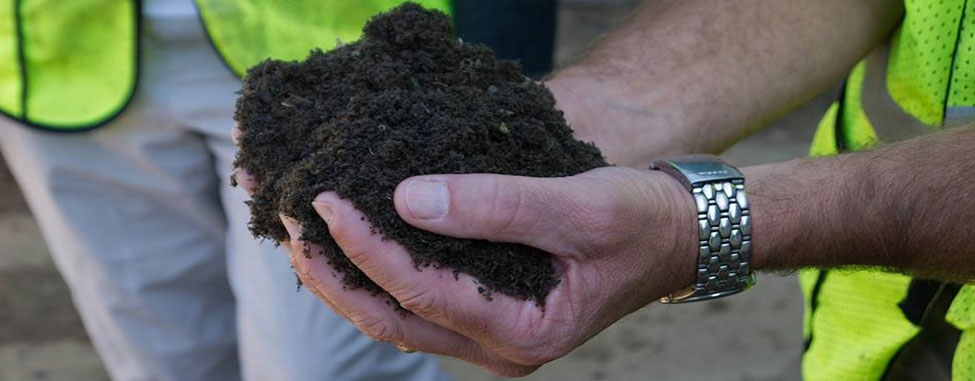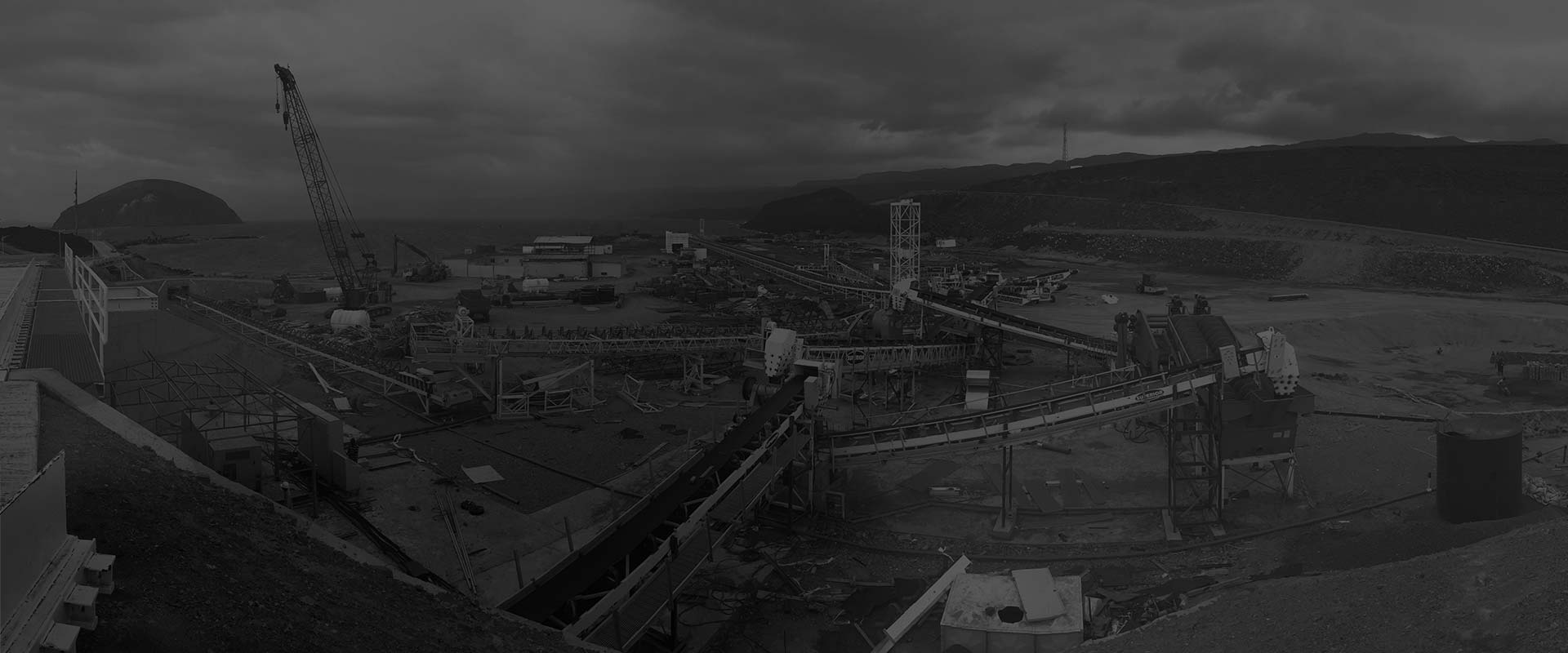0086-379-64087240
Fertilizer is a natural or synthetic nutrient element necessary for the growth and development of one or more plants. About 30% to 50% of the increase in crop yield is attributed to natural or inorganic chemical synthetic made by commercial fertilizer granulator and fertilizer cooler. Fertilizers can be divided into inorganic fertilizer and organic fertilizer according to their composition. Inorganic fertilizer, also known as chemical fertilizer or synthetic fertilizer, includes two sub-industries, simple fertilizer and compound fertilizer. It is usually made from non-organism, inorganic compounds, and minerals. Inorganic fertilizer is generally made of minerals, synthetic materials, or materials after the burning of animals and plants. Its forms include liquid, powder, particle or rod, etc. Organic fertilizer, also known as natural fertilizer, presents in the state of organic matter and is formed by the natural decay of organic matter in organisms. The industrial organic fertilizer includes mixed coating, seaweed extract, etc.


Whether it is inorganic fertilizer or organic fertilizer, we can provide you with the key equipment in the configuration of the fertilizer production line, as well as the fertilizer-making equipment for the harmless treatment of organic wastes such as organic-inorganic fertilizer, garbage, sludge, etc.

In the production line (configuration granulation part), our main advantage lies in the granulator, rotary dryer machine, cooler research, and production. The granulator cylinder we produced is lined with a special rubber plate or acid-resistant stainless steel plate instead of the traditional scraper device, which realizes automatic scar removal and tumor removal. The reasonable operation parameters are selected to solve the balance problem of "coal, material, and air", improve the thermal efficiency of the industrial rotary dryer, and reduce the energy consumption by more than 30-50%. We can make a cooling machine with a maximum size of 3x30m, the cylinder of the cooler is a spiral tube, which has high concentricity, strong rigidity, and smooth operation. We are always committed to reducing energy consumption, fully combining the best in engineering and manufacturing, and producing excellent fertilizer treatment equipment for the whole world. We guarantee that each piece of equipment is custom engineered to the process requirements for heavy machinery services.
Reference:Types of Fertilizer Granulators
Fertilizer granulators are essential machines in the agricultural and horticultural industries, playing a crucial role in transforming raw materials into convenient and effective fertilizers. These machines are designed to shape and size organic and inorganic materials into granules, pellets, or spheres, making them easier to handle, store, and apply. Understanding how a fertilizer granulator works is key to harnessing its potential for agricultural and environmental benefits.
Principles of Operation
Fertilizer granulators operate on the principles of compaction, agglomeration, and shaping. The process typically involves the following steps:
Material Preparation: Raw materials, which can vary widely from organic matter like compost or animal manure to inorganic compounds like urea or phosphates, are first prepared. This may involve grinding or crushing to achieve the desired particle size.
Mixing and Binding: In some cases, a binding agent or adhesive is added to the material to improve the granulation process. This binding agent can be water, a chemical binder, or even the inherent stickiness of some organic materials.
Granulation: The prepared material is fed into the granulator, where it encounters a rotating drum, plate, or other shaping mechanism. As the material moves through the granulator, it adheres together, forming granules. The size and shape of the granules depend on the design of the granulator and the properties of the material.
Drying: After granulation, the newly formed granules may contain excess moisture. Drying is often necessary to reduce the moisture content to a level suitable for storage and application. This step can be carried out using various drying methods, including natural drying, rotary dryers, or fluidized bed dryers.
Cooling and Screening: Once dried, the granules are cooled to room temperature to prevent clumping. They may also undergo screening to remove oversized or undersized particles, ensuring a consistent product.
Packaging: The final granulated fertilizer is ready for packaging and distribution to end-users, such as farmers or gardeners. It is often bagged in various sizes for easy application.
CICE, one of the leading heavy machinery manufacturers in the field of pelletizer machines, offers a wide range of fertilizer granulators tailored to various applications in agriculture and beyond. These versatile machines find extensive use in diverse scenarios:
Reference:Application of fertilizer granulator
1. Fertilizer granulator for Agricultural Fertilizer Production
CICE fertilizer granulators are instrumental in the production of agricultural fertilizers, including compound fertilizers, organic fertilizers, and specialized blends. These granulators efficiently process raw materials such as animal manure, crop residues, mineral nutrients, and bio-waste into convenient granular forms. Agricultural fertilizers produced by CICE granulators contribute to enhanced soil fertility, improved crop yields, and sustainable agricultural practices.
2. Fertilizer granulator for Environmental Waste Management
CICE fertilizer granulators play a pivotal role in waste management and recycling efforts. These machines can transform organic waste materials, such as food scraps, yard waste, and sewage sludge, into valuable organic fertilizers. By converting waste into a useful resource, CICE granulators support environmentally friendly practices while reducing landfill waste and greenhouse gas emissions.
3. Fertilizer granulator for Specialty Fertilizer Production
CICE granulators are highly versatile and can be customized to produce specialty fertilizers tailored to specific soil and crop requirements. This includes micronutrient-enriched fertilizers, slow-release formulations, and custom blends designed to address nutrient deficiencies and optimize plant growth. Specialty fertilizers produced by CICE granulators offer precise nutrient management for diverse agricultural needs.
4. Fertilizer granulator for Horticultural and Gardening Applications
In horticulture and gardening, CICE fertilizer granulators enable the creation of custom fertilizers suitable for various plants and growth conditions. Whether for potted plants, flower beds, or vegetable gardens, these granulators provide a means to produce granulated fertilizers with controlled nutrient content and release characteristics, promoting healthy plant growth and vibrant blooms.
5. Fertilizer granulator for Agricultural Research and Development
CICE fertilizer granulators are essential tools in agricultural research and development. They facilitate the formulation and testing of new fertilizers, additives, and crop nutrition strategies. Researchers and agronomists can use CICE granulators to create precise and consistent fertilizer formulations for field trials and experiments, contributing to advancements in agricultural science.
